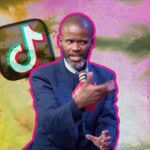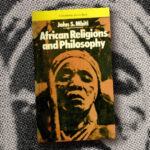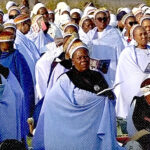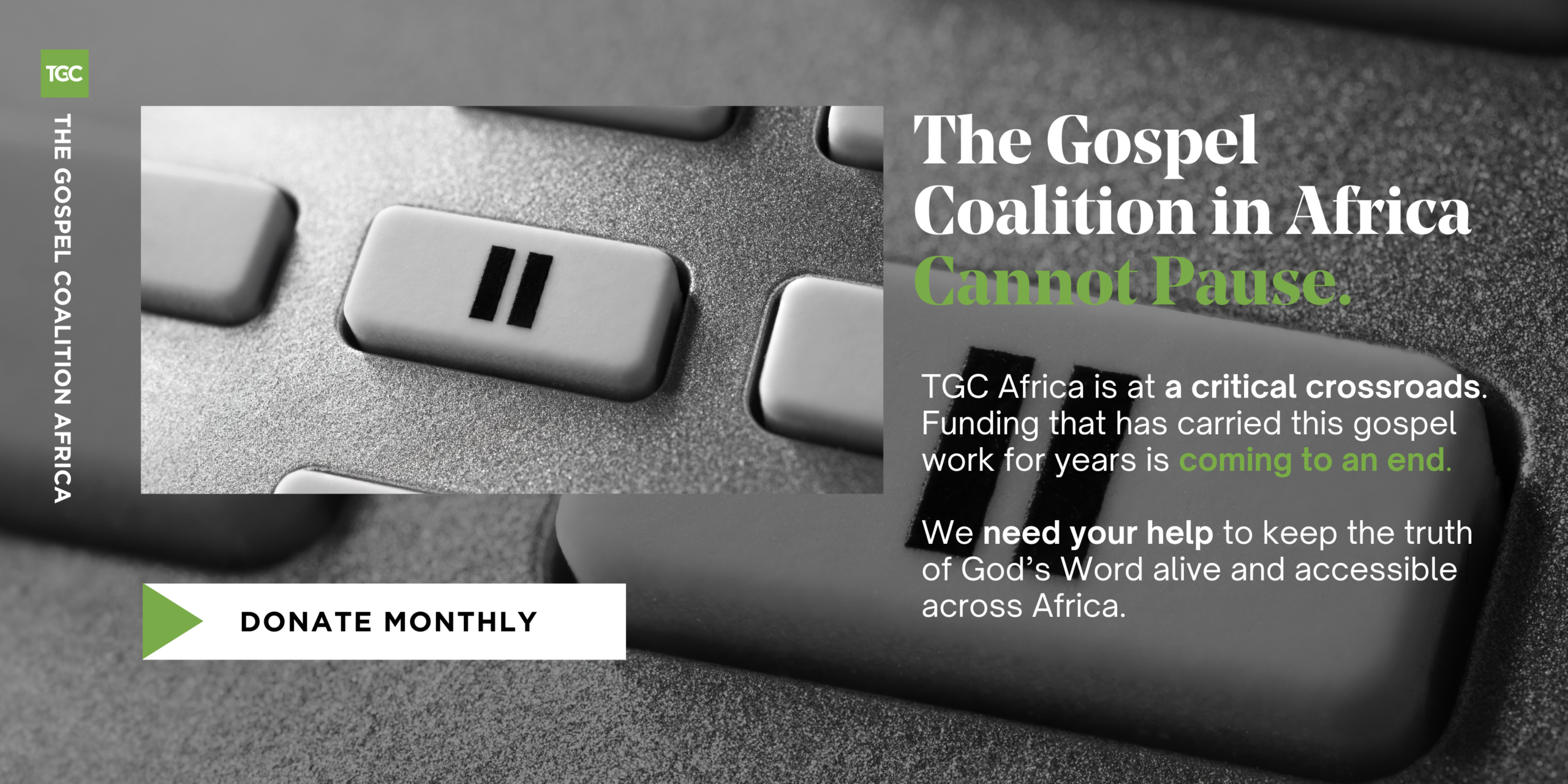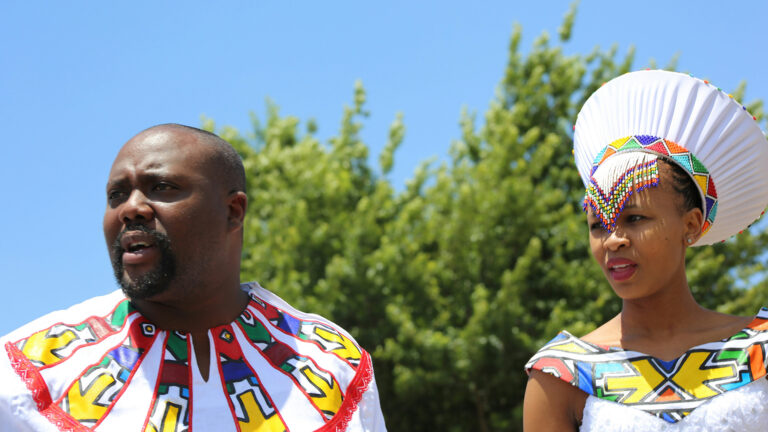Across the African continent, the idea of a saviour or messiah has deeply resonated, particularly in regions scarred by colonial oppression, racial injustice, and systemic poverty. These experiences have often led communities to seek redeemers who look like them.
The rise of such movements reveals a deeper theological tension: a human longing for deliverance.
Isaiah Shembe not only led a spiritual movement but also restored Zulu cultural pride, during a time when colonial powers suppressed African traditions. Simon Kimbangu’s prophetic ministry provided hope and defiance during Belgian rule, positioning him as a liberator and messiah figure among his people. Olumba Olumba Obu, in contrast, claimed a divine identity, declaring himself a new revelation of God beyond Christ. These leaders addressed deep cultural wounds, offering a form of salvation rooted in the African experience.
The rise of such movements reveals a deeper theological tension: a human longing for deliverance amidst suffering and the challenge of reconciling cultural pride with the supremacy of God. While these leaders responded to specific historical and social contexts, their claims often undermined the Christian doctrine of Christ’s exclusivity. The Bible consistently points us to Jesus Christ, the universal Saviour, whose life, death, and resurrection address humanity’s ultimate need for reconciliation with God.
Why Africans Look for Messiahs
The messianic movements of Shembe or Kimbangu, among the others, must be understood against the backdrop of colonialism, which stripped African peoples of their lands, cultural heritage and dignity. In many cases, Christianity was presented through a colonial framework, with Jesus depicted as a European figure. This led many Africans to associate the Christian faith with white supremacy and oppression, prompting some to reinterpret Jesus and biblical narratives through an African lens.
The messianic movements of Shembe or Kimbangu must be understood against the backdrop of colonialism.
The first Portuguese convert to Christianity was Kimpa Vita, a Congolese woman, who claimed that Jesus Christ and other biblical figures were black Africans, and that Jesus was born in the Kingdom of Kongo, rather than in Bethlehem. Her motives were to counter European interpretations of Christianity that marginalised African identity. She argued that the Christian message had been misrepresented by Europeans. Her movement sought to assert African identity within Christianity.
The same can be said of modern cultural identity movements like Rastafarians, Black Hebrew Israelites, Nation of Islam and Kemetic Spirituality. These are all responses to colonialism, rather than truth-based movements.
History Is Full of the Longing for Liberation
This dynamic is not unique to Africa. The Jews of John the Baptist’s time faced a similar crisis under Roman occupation. Their longing for deliverance was not only spiritual but also political. The Pharisees and Sadducees sought a messiah who would overthrow Roman power and restore Israel’s sovereignty. When they asked John the Baptist, “Who are you?”, they were expressing this deep cry for liberation (John 1:19, 22). They longed for a saviour. A hero.
Human saviours can only address temporary needs; they cannot conquer sin and death.
John’s answer was profound: “I am not the Messiah” (John 1:20). “I am not worthy to untie his sandals” (John 1:27). John recognised that no human leader, no matter how charismatic, could fulfil the role of the Messiah. The salvation humanity needs cannot come from political or cultural heroes—it must come from God himself.
Like the Jews under Roman rule or Africans under colonial oppression, people everywhere long for deliverance, for a messiah. However, human saviours can only address temporary needs; they cannot conquer sin and death (Romans 7:24).
The Problem with Human Saviours
Throughout history, people have placed their hope in charismatic leaders who promised liberation and restoration. However, the Bible reminds us that all human saviours are flawed. As Paul writes in Romans 3:23, “All have sinned and fall short of the glory of God.”
Jesus’ victory sets him apart from every other messianic figure.
Cultural messianic figures like Shembe, Kimbangu, or Olumba Obu may address temporary needs, but they cannot save humanity from its greatest enemies: sin and death. Only Jesus Christ qualifies as the true Saviour, because he is both fully God and fully man. Unlike human leaders, he lived a sinless life, died for the sins of the world, and rose again, defeating death itself.
As Jesus declares, “I am the Living One; I was dead, and now look, I am alive forever and ever! And I hold the keys of death and Hades” (Revelation 1:18). This victory sets Jesus apart from every other leader or messianic figure.
The Gospel’s Universal Call
The universal nature of the gospel answers humanity’s deepest need. While cultural movements seek to address matters of identity and belonging, the gospel transcends these concerns. Acts 4:12 proclaims, “Salvation is found in no one else, for there is no other name under heaven given to mankind by which we must be saved.”
In Christ, cultural diversity is celebrated, as all peoples are united under his lordship.
This does not mean that the gospel erases cultural identity. Instead, it redeems it. Revelation 7:9 paints a picture of a diverse multitude worshiping Christ in heaven. “From every nation, tribe, people, and language.” In Christ, cultural diversity is celebrated, as all peoples are united under his lordship.
Christ Addresses Our Greatest Need
The rise of African messianic movements reflects a deep yearning for identity, liberation, and belonging. Leaders like Isaiah Shembe, Simon Kimbangu, and Olumba Olumba Obu offered hope in contexts of oppression and cultural erosion. However, their movements ultimately fall short of addressing humanity’s greatest need—reconciliation with God.
Worship is not a response to white supremacy but God’s.
The Bible presents Jesus Christ as the only Saviour who can truly meet this need. His life, death, and resurrection offer salvation that transcends culture, race, and history. Worship is not a response to white supremacy but to God’s supremacy.
As John the Baptist declared, “I am not the Messiah!” No human leader can take the place of Christ. The gospel calls us to look beyond cultural heroes and messianic figures to the one true Saviour, Jesus Christ. He alone offers eternal life and restores humanity to its rightful place in God’s creation.
DON’T HAVE PAYPAL TO SET UP A MONTHLY DONATION? If you would like to donate via Payfast – a secure payment gateway available to donors both inside and outside of Africa – please click here.

